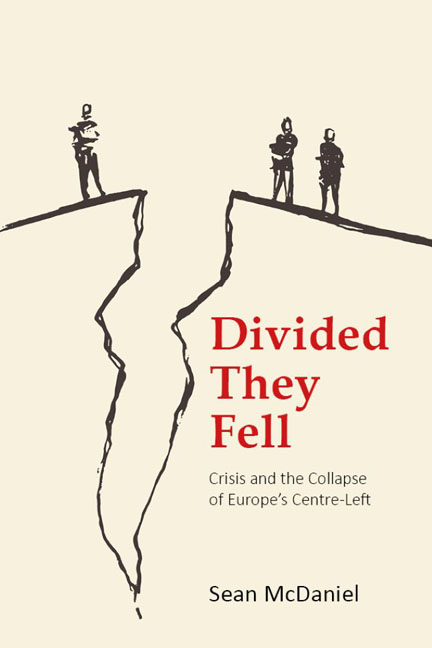Book contents
- Frontmatter
- Contents
- List of abbreviations
- Acknowledgements
- Introduction
- 1 Neoliberal convergence and the politics of austerity: is there still space for the centre-left?
- 2 Struggling to win: centre-left electoral decline and the strategic dilemma of the Third Way
- 3 Developing a strategy: the internal dynamics of the centre-left’s response to the crisis of neoliberalism
- 4 Delivering the strategy: how the centre-left sought to communicate a response to the crisis of neoliberalism
- 5 Stagnation, failure and fragmentation: the rise of the radical left
- 6 Post-pandemic politics: how are the centre-left rebuilding?
- Conclusion
- Appendix: interviewees and interview locations
- Notes
- References
- Index
Introduction
Published online by Cambridge University Press: 23 January 2024
- Frontmatter
- Contents
- List of abbreviations
- Acknowledgements
- Introduction
- 1 Neoliberal convergence and the politics of austerity: is there still space for the centre-left?
- 2 Struggling to win: centre-left electoral decline and the strategic dilemma of the Third Way
- 3 Developing a strategy: the internal dynamics of the centre-left’s response to the crisis of neoliberalism
- 4 Delivering the strategy: how the centre-left sought to communicate a response to the crisis of neoliberalism
- 5 Stagnation, failure and fragmentation: the rise of the radical left
- 6 Post-pandemic politics: how are the centre-left rebuilding?
- Conclusion
- Appendix: interviewees and interview locations
- Notes
- References
- Index
Summary
The crisis of neoliberalism
This book is concerned with the fortunes of two of Europe's centre-left parties in the context of “the crisis of neoliberalism”, beginning with the Global Financial Crisis (GFC) in 2008; to better understand why this crisis of neoliberalism is significant for the centre-left, we need first to go back several decades. The beginning of the neoliberal period in the late 1970s spelled trouble for Europe's centre-left parties. With the economic crises of the mid-1970s, including the 1973 oil shock and growing stagflation, the postwar Keynesian settlement that had characterized much of the 30-year period from 1945 was put under threat and was eventually displaced by neoliberalism. Neoliberal ideas began to strongly influence governments and policy-makers across the globe in the late 1970s, and particularly in the UK and USA, which oversaw the dismantling of postwar capital controls and permitted a growing role for global financial capital, as well as a focus on price stability and sound money over full employment and redistributive welfare.
For many commentators, the new stage of liberalized global capitalism it ushered in rendered traditional centre-left social democratic politics impossible. Widespread financial deregulation following the collapse of the Bretton Woods international monetary system had, it was argued, engendered a new age of highly mobile global capital which disempowered domestic policy-makers. Deindustrialization, exacerbated by economic globalization, further fragmented the traditional working-class electoral core of centre-left parties, while there was a growing feeling that a new age of “popular capitalism” – underpinned by widening access to, for example, housing assets – spelled trouble for progressive political actors.
The 1990s, nonetheless, ushered in a new age of the European “Third Way” centre-left (see Giddens 1998). The Third Way was an ideological approach and political strategy that saw the centre-left redefine its relationship with capitalism as an economic system and recast its ambitions for what modern “progressive” governments can and should do in power. For some, such as the UK Labour Party under Tony Blair and the German Social Democratic Party (SPD) under Gerhard Schröder, this was simply about accepting the “realities” of modern capitalism, albeit while attempting to ensure sufficient protection from market forces for the population at large.
- Type
- Chapter
- Information
- Divided They FellCrisis and the Collapse of Europe's Centre-Left, pp. 1 - 22Publisher: Agenda PublishingPrint publication year: 2023



